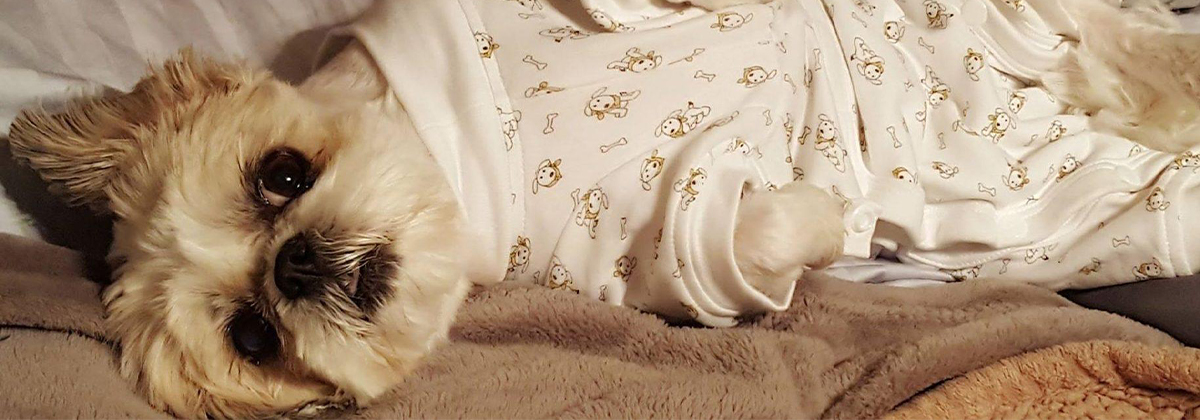25 Mar Tips for bathing a dog after sergury
After each surgery, your dog should be cleaned. This cleanliness has nothing to do with size, smallness or type of surgery. During your dog’s recovery, you should clean and rinse his surgical sites. You need to take special care of your dog after surgery and take post-surgery washing and surgical incision care seriously. Your veterinarian may have taught you how to bathe your dog after surgery, but there are a few basic things to keep in mind while washing to keep your dog clean and healthy sooner. Your dog may be a little weak or exhausted due to postoperative medications. He may not like to be touched, and it may be painful and sensitive to touch other parts of his body, such as around a surgical incision, too.
Grooming dog after surgery
- If your dog likes to roll over in something unpleasant after surgery before bathing, wipe him with a wet towel or dog wipe. Be careful not to approach the surgical incision site.
- Don’t allow your dog to bathe until the veterinarian permits. If you want to clean your dog, don’t immerse him in water for 10 to 14 days after surgery.
- If the surgical incision is very dirty, you can gently clean the area with cotton and water without soaking the sutures. Don’t water the stitches and gently touch or rub the surgical incision site.
- When your dog can’t bathe, use a damp cloth to keep his face clean in the first few days after surgery. Some dogs have very messy faces, and their faces should be cleaned after each meal. Pay attention to your dog’s eyes; If dirt or foreign particles accumulate in it, clean his eyes without immersing them in water.
- Your dog may want to lick the surgical incision. This licking helps reduce pain and kill bacteria. But also, licking the surgical incision can open bacteria from your dog’s mouth into the wound. So don’t let your dog lick the incision.
- If you use the collar so that your dog doesn’t lick the incision, he may lick other parts such as his paws or feet; Because it has easy access to them. Then wipe these areas with a damp cloth or a wipe to keep them clean after licking.
Wound care
- Contact your veterinarian if you see bleeding or scaling around your dog’s wound. Keep this area clean with a damp cotton ball. Just be careful that the skin doesn’t get too wet, and the stitches don’t get wet.
- If there is a bandage on your dog’s wound, your veterinarian will tell you how often to replace it. If you need a replacement, your veterinarian will give you extra bandages. Just make sure to replace the bandages according to the instructions.
- If you have bandages, be sure to keep them clean and dry. If for any reason a bandage gets wet or dirty, be sure to replace it immediately and make sure the skin, incision or wound is clean and your dog’s coat is dry.
- Your dog may have a drain after surgery and want to evacuate the surgery site. Your veterinarian will give you post-operative care instructions for any drains. If you need to clean the drains, use warm saltwater. Never use soap for dog wounds.
- Today, many surgical sutures remain in your dog’s body that has been absorbed by the body over time and no longer need to be removed. But some surgeries may require you to see a veterinarian again about 14 days later to have the stitches removed. Never cut or remove the stitches yourself. Keep the stitches dry at home to seal the wound properly.
important points
- Contact your veterinarian immediately if you are unsure about something, don’t have enough information, or have questions about how to care for your dog after surgery, especially if there is contamination or bacteria around your dog’s surgical area.
- Be sure to follow all instructions after surgery according to your veterinarian.
- Please don’t be too harsh in caring for your dog to not cause further injury or pain to him.
- Sometimes you shouldn’t approach the surgical incision area while bathing.
- The surgical area may need extra care due to sensitivity to touch.
- A foul odour from a surgical incision may be a sign of infection. In this case, contact your veterinarian immediately.
- Your dog may also feel pain in other parts of his body due to pain from surgery. So when picking up your dog, gently lift and massage his muscles, even the muscles outside the surgical incision.
- Caring for a dog after surgery is a big responsibility and a difficult task. To keep her healthy, try not to place her in dirty and contaminated areas where you have to wash and clean her constantly.
- Dogs shouldn’t be wet until two weeks after surgery. This wetting also includes going out in the rain or running and walking on wet grass.
After your dog’s surgery, he needs more sensitive care. After any surgery, be gentle and kind to your dog and take good care of him. Taking care of your puppy with a gentle bath is a great way to show your love for him; Mishka’s expert team is by your side to reduce the surgery and the resulting pain with excellent and complete grooming. Mishka’s experienced groomers will provide you with all the information you need about how to care for and clean your dog after surgery.




No Comments